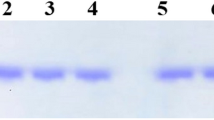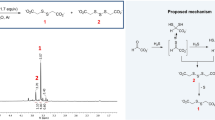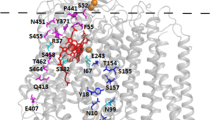Abstract
The succinate and glycerophosphate dehydrogenases belong to the group of ‘cytoehrome-reducing dehydrogenases’1. In some tissues the succinic system is by far the more active, but in others (for example, rabbit skeletal muscle) the two systems are equally important. Hopkins et al.2 suggested that in the succinoxidase system from heart muscle there was an intermediate factor linking the dehydrogenase with cytoehrome c. Stern and Melnick3 claimed to have separated the factor, although their evidence has been rightly questioned4. Straub5 has shown that an oxidase preparation lacking the factor can be reactivated by a heart-muscle dispersion in which the succinic dehydrogenase and cytoehrome oxidase have been destroyed. Experiments reported below show the existence in liver of a soluble factor which links or makes accessible the succinodehydrogenase to the cytoehrome system. This factor or activator is not necessary for the α-glycerophosphate system.
This is a preview of subscription content, access via your institution
Access options
Subscribe to this journal
Receive 51 print issues and online access
$199.00 per year
only $3.90 per issue
Buy this article
- Purchase on Springer Link
- Instant access to full article PDF
Prices may be subject to local taxes which are calculated during checkout
Similar content being viewed by others
References
Green, D. E., and Brosteaux, J., Biochem. J., 30, 1489 (1936).
Hopkins, F. G., Lutwak-Mann, C., and Morgan, E. J., Nature, 143, 556(1939).
Stern, K. G., and Melnick, J. L., Nature, 144, 330 (1939).
Keilin, D., and Hartree, E. F., Proc. Roy. Soc., B, 129, 277 (1940).
Straub, F. B., Z. physiol. Chem., 272, 219 (1941).
Quastel, J. H., and Wheatley, A. H. M., Biochem. J. 32, 936 (1938).
Author information
Authors and Affiliations
Rights and permissions
About this article
Cite this article
STOPPANI, A. Constitution of the Succinate and α-Glycerophosphate Oxidase Systems. Nature 160, 52–53 (1947). https://doi.org/10.1038/160052a0
Issue Date:
DOI: https://doi.org/10.1038/160052a0
Comments
By submitting a comment you agree to abide by our Terms and Community Guidelines. If you find something abusive or that does not comply with our terms or guidelines please flag it as inappropriate.



